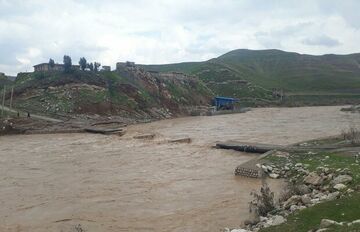TEHRAN(Bazaar) –The remarks of US President-elect, Joe Biden during the presidential debate on the fate and destiny of the US oil industry, have sparked heated debate Fitch Ratings announced two days ago that Joe Biden's victory in the US elections and his policy to reduce the consumption of fossil fuels and distance the US from these fuels will influence on the US oil and gas industry.
According to the Fitch report, Biden believes that climate change is a dangerous threat to the planet, and the transition from fossil fuels and the move to clean energy could be a new economic opportunity for the United States that US must be a pioneer in the field of clean energy technology.
Fitch also believes that while the Democrats have won the presidential race, Biden may not be able to pursue his policies because the Republican Party may control the Senate and given the party's support for the US oil and gas industry, Biden cannot advance this field of energy easily.
In this regard and based on the importance of the energy sector for the United States, Bazaar reporter spoke with Andrew Korybko about the impact of Joe Biden's victory On the US oil and gas industry, the entrance of Iran and Venezuela into the oil market and its impact on falling prices, the amount of energy production with the presence of Biden which is different from Trump and Biden's approach to Saudi Arabia in the field of energy.
Korybko is an author, senior, journalist and faculty member at the Institute for Strategic and Futuristic Studies at the Russian Friendship University. A Moscow-based American political analyst specializing in the relationship between the US strategy in Afro-Eurasia, China's Belt & Road Initiative, and Hybrid Warfare.
Following is the text of the interview:
Bazaar: Some believe Biden's presence in the White House could make a significant difference in US oil and gas policies. One reason for this is his focus on renewable energy and the reduction of fossil fuels, and his return to the Paris climate agreement. What is your assessment?
Korybko: Biden's long-term vision is to move towards renewable resources, but it'll take a long time to implement. In the interim, his commitment to returning to the Paris Agreement will likely see him making moves to reverse Trump's so-called “shale energy revolution”, which could in turn reduce the US' production and thus lead to an eventual increase in prices at home. This would also have the effect of weakening the US' “energy diplomacy” whereby it leverages such exports for political ends such as in Europe to geopolitically compete with Russia. It might not be immediate, but that's the overall direction that he seems to be headed in the event that he's able to successfully execute his vision.
Bazaar: According to Biden, his policies will be similar to those of the Obama administration, which will likely mean the return of Iran and Venezuela as two members of OPEC and the lifting of US sanctions. Of course, this is provided that a way is provided to reduce the crisis between the United States and these two countries. In your opinion, with the entry of Iran and Venezuela into the oil market, will we see a drop in prices?
Korybko: Yes, the reduction or even eventual removal of the US' unilateral sanctions on both of those countries' energy exports could result in a lowering the price of oil. With the US more than likely reducing its oil exports under Biden in the event that he's able to execute on his vision per the above answer, it's possible that those two might seek to replace its newfound presence in the European and other markets. It would also lead to the US once again becoming dependent on energy imports, which could motivate it to play a more active role in those regions like it did under Obama and his predecessors, especially with respect to the West Asia.
Bazaar: One of the shortcomings of the Biden administration over Trump is that the Democrats are unlikely to have close ties with Saudi Arabia, especially in the oil sector. Trump has been able to establish good relations, especially with Saudi Crown Prince Mohammed bin Salman, who is the de facto king of the country and has taken over. Saudi Arabia is the most influential country in OPEC, and the lack of a very close relationship between Biden and the Saudis means that it will probably no longer be able to influence the OPEC as it once did in the past. What is your assessment?
Korybko: Biden might not be all that bad for Iran since that's likely the case. In fact, it can be argued that the return to Obama-era policies might see the US attempting to revive its failed rapprochement with the Islamic Republic. Saudi Arabia already seems frightened by this possibility since it fears that it would tilt the regional balance of power against its favor. The gradual economic-led improvement of American-Iranian relations following Washington's possible return to the JCPOA and eventual lifting of related sanctions could see the two becoming closer in the future, though Iran must be always be wary since the US likely wouldn't be sincere in its outreaches but simply trying to subvert the country through more indirect means via economic, social, and other methods with time. In other words, while pragmatic relations should always be applauded, Iran mustn't lose sight of the fact that some US policymakers might see any rapprochement between them as a means to strategically disarm the country, especially if some of their Iranian counterparts mistakenly think that they can trust America under Biden. But on balance, considering the fact that regional geopolitics are veritably a zero-sum game, what's good for Iran is bad for Saudi Arabia and vice-versa so the near-term prediction is that American-Saudi relations might worsen in parallel with the improvement of American-Iranian ones.
Bazaar: While Trump has always sought to maximize US oil and gas production, Biden has stated that he intends to ban new drilling in the region and federal waters to counter climate change. In 2019, the United States extracted 3 million barrels of oil per day from its territories and federal waters, and the amount of gas extracted from these fields was equivalent to 13.2 billion cubic meters per day. This is equivalent to a quarter of US federal oil production and one-eighth of US gas production. According to Biden, oil and gas production from these areas will stop in a few years. It could also affect the federal government's revenue from oil and gas production, which was $ 12 billion in 2019. How will this affect US energy production?
Korybko: Biden's environmental radicalism is politically motivated and intended to serve as the pretext for refocusing American attention back to West Asia after becoming more dependent on energy imports from there following the execution of his vision, provided of course that's successful. Reducing the US' energy production only worsens its energy security, which in turn compels it to remain actively involved in the affairs of energy-rich regions such as that one. The American track record of engagement with West Asia is extremely poor and marked by militarism so it can be predicted that this development might actually be disadvantageous for those countries in the long-term. This would especially be the case if Biden enters into a “New Detente” with China in order to facilitate the refocusing of the US' strategic attention away from East Asia and back to West Asia. Although it might seem that energy prices will remain low as a result of the insight that was shared in this interview, they might actually unexpectedly jump from time to time in the event that America provokes a regional crisis due to its re-engagement with the region.
Interview by Tahmine Ghamkhar
















نظر شما